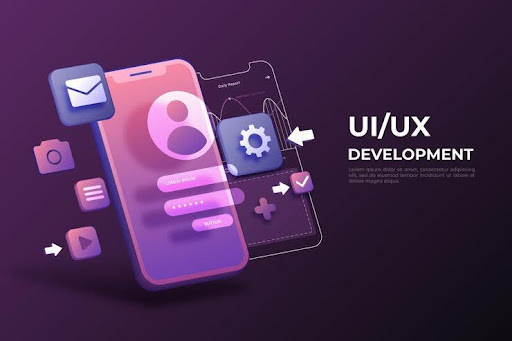Building a Mobile App: When to Hire a Developer vs. Using No-Code Platforms
- Kritika Verma
- November 22, 2024
- 7 Minute Read

By 2024, mobile apps will gross over $935 billion. Today, 1.96 million apps are available for download on the Apple App Store, and 2.87 million apps can be downloaded from the Google Play Store. 21% of Millennials open an app 50+ times per day.
In fact, the mobile app development market is projected to grow from $195.7B in 2023 to $606.1B by 2032, at a CAGR of 13.1%. Because of the fast-changing digital environment, most businesses today need mobile applications.
Preparing to develop an application requires much thought, as choosing between a developer and no-code platforms greatly affects the quality, cost, and scalability of an application.
Businesses hire mobile app developers for personalized approaches, as it suits them to meet precise specifications as required. On the other hand, enterprises are also developing something easy using no-code platforms. Each option has special benefits, costs, and constraints corresponding to different business needs and goals.
Here is a guide that will help you in making one of the most crucial decisions related to app development options.
Understanding Mobile App Development

Mobile application development is software application development for mobile devices. It involves coding, design, and user experience knowledge as one builds an application that meets specific requirements and achieves certain goals.
Types of Mobile Applications
- Native apps are built for a specific OS like iOS or Android.
- Hybrid applications fall somewhere between native and web applications. They are developed with a combination of web technologies and run inside an operating system’s native shell.
- The web application uses a mobile application. Instead of installing a product onto a user’s phone or a device, it can open in their web browsers.
Role of a Mobile Application Developer
When you hire a mobile app developer from India, you must consider their role, technical skills, creativity, and an understanding of the user experience.
A mobile app developer’s skill set is vast, including technical expertise, problem-solving, and an eye for detail. Some of the key skills include:
- Proficiency in Programming Languages, depending on the native for iOS, Swift, or Objective-C, and for Android, Java, or Kotlin, is required
- Understanding of UI/UX principles to create intuitive interfaces
- Database management and integration
- Debugging and testing skills to make the app stable
- Adaptability to new technologies
Benefits of Hiring a Professional Developer
The benefits include greater user experience and more reliability. Others are:
- Professional developers offer customized solutions according to functionalities and target audiences.
- Developers can implement robust measures such as data encryption or two-factor authentication to meet data privacy regulations.
- Custom-made applications can scale at a good rate.
- Proper maintenance after implementation and support services through constant follow-ups.
- When businesses hire a mobile app developer from India, it brings better quality output for cheaper prices.
What Are No-Code Platforms?

No-code platforms have revolutionized app development without requiring any coding experience. The platforms make app development easier using a visual interface, letting components be dragged and dropped into place for fast and economical app building.
No-code platforms exclude the traditional coding method using a user-friendly interface allowing users to select and design pre-built elements.
Key Features of No-Code Tools
The main features of no-code tools are:
- Drag-and-Drop Functionality: The app components can be combined without a single line of code, making this development platform easy for non-developers to use.
- Templates and Pre-Built Components: No-code platforms have templates and pre-built components such as buttons, forms, and layouts.
- API Integrations: Most no-code platforms offer API integration for services like payment processing, email, and analytics.
- Real-Time Collaboration: Platforms are built with real-time collaboration so that many team members can work on the application in real time.
No-code platforms are mostly preferred by entrepreneurs and small business companies that need a faster and cheaper solution.
Large businesses or projects requiring extended features hire mobile app developers to make high functionality and scalability a possibility for complex apps.
When to Hire a Developer

Hiring a remote developer would be strategic in the following conditions:
1. Complex App Requirements and Custom Features
If the companies’ needs are elaborate, including third-party services, complex data processing, and even real-time updates, hiring an IT talent will be required.
When you hire a mobile app developer from India, you get the benefit of handling the most intricate functionalities that no-code platforms cannot support.
Developers in India are skilled in the technologies currently required, including Java, Swift, and Python, and they are cheaper compared to their counterparts in the West.
2. Scalability and Advanced Functionality
Custom development is highly flexible and adaptable to enhance capacity, performance, and advanced features over time.
3. Importance of User Experience and Design
90% of users quit a site due to bad performance. Only 1% of users say that e-commerce sites meet their expectations every time. User experience and interface designing is one of the very significant aspects of keeping a user involved and engaged for an extended period.
When to Use No-Code Platforms
Research predicts that the use of no-code platforms can grow up to 70% of new applications used in enterprises by 2025, from less than 25% in 2023.
The surge for this growth is derived from the simplicity, flexibility, and rapid deployment with which low-code platforms bring changes.
No-code platforms are for start-ups, especially for simple applications and MVPs (Minimum Viable Products) that can be used for quick prototyping and iteration without technical knowledge.
You can use no-code platforms in the following scenarios:
1. Simple Apps and MVP (Minimum Viable Product) Development
No-code platforms are excellent for simple, low-customized application development. They let firms develop and launch an MVP in record time. Gathering user feedback and determining how much potential the application possesses in the market are validated before further investment is spent on building the whole-scale application.
2. Rapid Prototyping and Iteration
A no-code platform is very apt for projects that require rapid prototyping and iteration testing. Startups benefit most from the ability to build, test, and adjust apps in real time based on feedback. Iteration is fast on platforms that support drag-and-drop interfaces, pre-built components, and templates.
3. Cost-Effective Solutions for Startups
No-code platforms are cost-effective entry points into the app market. It’s predictable and manageable through a subscription-based pricing model; therefore, easier to budget without large upfront costs.
Cost Comparison: Hiring a Developer vs. No-Code Platforms
Cost is vital for determining whether a developer should be employed or a no-code platform should be used. Here are some insights:
|
Aspect |
Hiring a Developer |
Using No-Code Platforms |
|
Initial Development Costs |
High: Depending on complexity, the range is from $80,000 to $150,000 |
Low: Ranges between $20 to $500/month depending on features. |
|
Customization Fees |
It is costlier to have highly customized features because development time is longer. |
This will be limited in no-code, as customization will be restricted to the template or add-on available. |
|
Maintenance and Updates |
Involves constant support from developers |
Most no-code platforms handle backend maintenance and updates as part of the subscription model. |
|
Long-Term Investment |
High: Custom development has far better returns on investment, mainly because of the customization and flexibility. |
Moderate: Costs are low at the initiation stage, but long-term may be limited. |
Pros and Cons of Hiring a Developer
There are distinct pros of hiring a developer, but this is also challenging at times. Here are the in-depth pros and cons for businesses that hire a mobile app developer from India:
|
Advantages |
Limitations |
|
Apps can be developed with specific requirements with unique features. |
It is costly due to up-front development expenses. |
|
Custom-built applications can be created with a scalable architecture to add more user demand. |
Custom app development is time-consuming. |
|
Developers can implement stringent security protocols in case apps handle sensitive information. |
Maintaining a custom-built app requires dedicated support. |
|
The developers can make designs intuitive and responsive |
Businesses need to rely on skilled developers. |
|
Custom development has no such limitation which can restrict features like AI, ML, or IoT. |
Projects may face delays or budget overruns due to unforeseen technical challenges. |
Pros and Cons of No-Code Development Platforms
No-code platforms are an inexpensive, cost-effective solution for businesses, but they have limitations that may impact long-term goals.
|
Advantages |
Limitations |
|
Apps can be developed and deployed quickly, sometimes in days or weeks. |
Customization is limited to the available templates and components. |
|
No coding skills are required, and even nontechnical users can create and maintain apps. |
No-code platforms can’t scale up with increased usage. |
|
Providers of no-code services maintain the back-end and software updates. |
Advanced integrations such as CRM or custom APIs are usually limited or extra cost. |
|
No-code platforms can help create MVPs. |
They lack a rich security protocol needed by organizations with strict data privacy protocols. |
Making the Right Choice for Your Project
Choosing between an in-house developer and using a no-code platform depends on several critical criteria. Things to consider for choosing between hiring a developer and a no-code platform are:
- Competition and customization needs
- Scalability of the system
- Budget
- Rate of development
- User interface and UX
- Maintenance and updates
- Security and Conformity
Project Requirements and Budget Analysis
Among the critical questions that one should address before making the decision include:
1. What is the Purpose of the Application?
Apps that need high interactivity, traffic, and special features will require more hiring of developers.
2. How important is customization?
If the business requires a very branded app experience, then custom development will be more flexible. No-code platforms are very restrictive in their customizability.
3. What is the size of the user base?
A larger user base typically demands a scalable infrastructure. Custom development allows developers to build an app that considers future growth.
4. What’s the budget range?
Hiring a mobile app developer from India may make custom development easier when the budget is a concern. If the budget is thin, no-code platforms would be cheaper.
Conclusion
A mobile app is always a strategic effort, and the decision to hire mobile app developers or use no-code platforms determines its success. Each has strengths that relate to the needs of different projects.
Professionals offer flexibility, customizability, scalability, and high security. Hiring developers is best suited for heavy applications, high-traffic apps, or applications that demand a unique user experience. No-code platforms provide a fast, cost-efficient solution ideal for simpler applications or MVPs. They are suitable for startups and businesses.
Ultimately, your project’s unique requirements, budget, and long-term vision will determine whether to hire a mobile app developer from India or choose a no-code platform.









